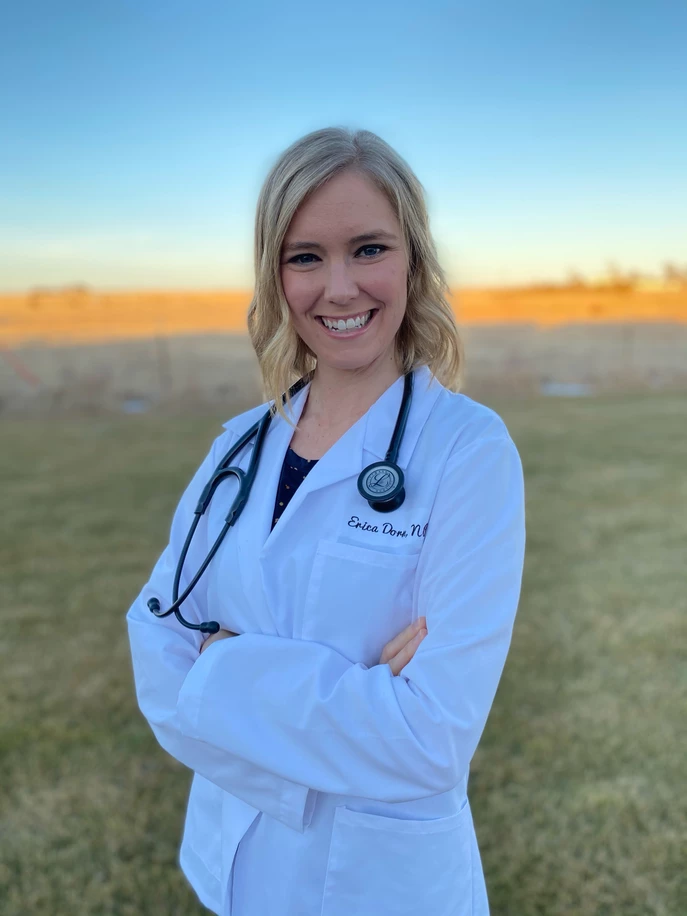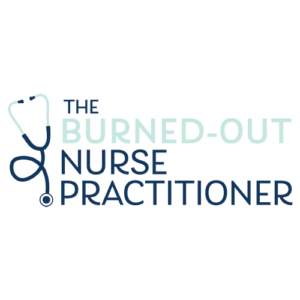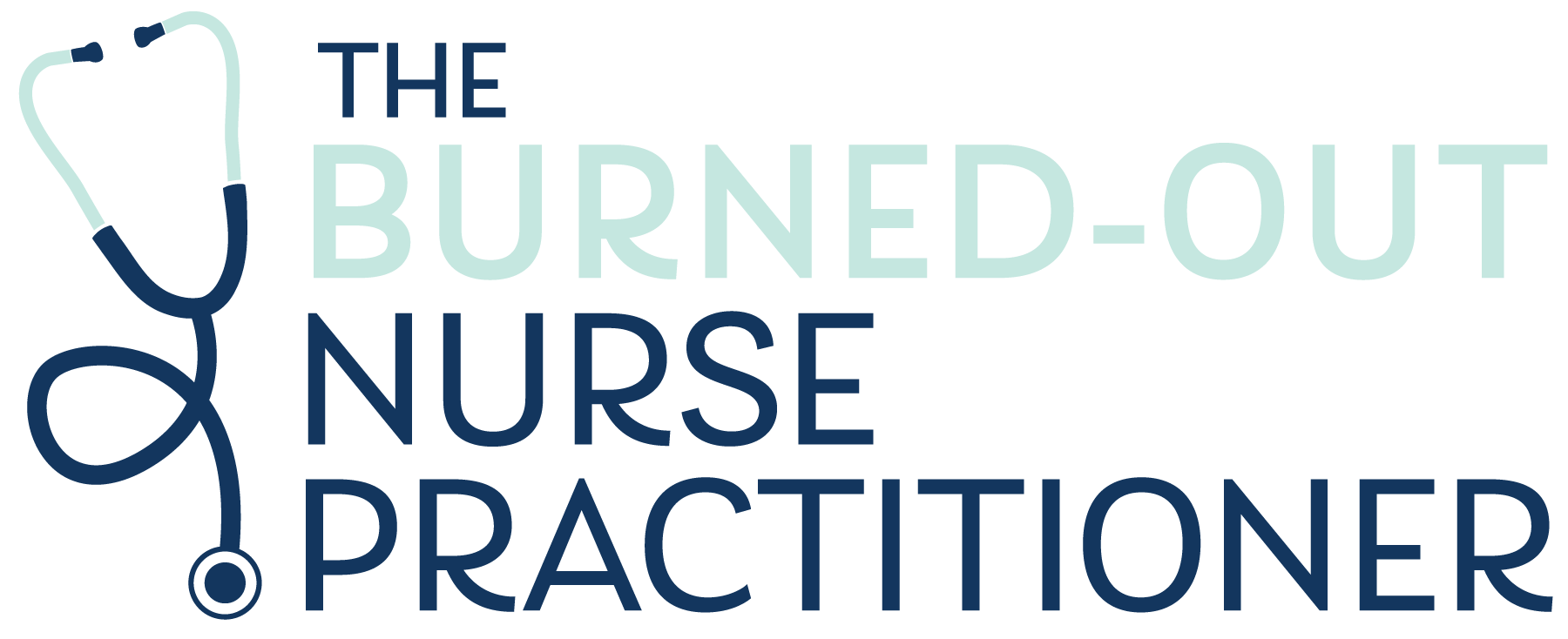Nurse practitioners are prone to a lack of professional boundaries in healthcare.
These lack of boundaries can be either professional (i.e. with patients, administrators, co-workers) or even in our personal relationships. Nurse practitioners who do not set (and keep) healthy boundaries are at a huge risk for nurse practitioner burnout.
Let’s first identify what a boundary is. A boundary can be defined as a limit or rule with clear expectations. A boundary addresses assumptions and preconceived notions. Setting healthy boundaries helps nurse practitioners protect our time, our energy, and our mental/physical/emotional health.
When we a lack of professional boundaries in healthcare, we do not put our needs first. Nurse practitioners constantly put other people’s needs first. Our entire work day (and even the hours we spend charting at home) consists of putting the needs of others before our own. When this happens, APRNs end up empty. Our cups are not filled. We are not able to pour our support to others.
(Here are the signs and symptoms you may need to set healthy boundaries).
Examples of unhealthy boundaries as nurse practitioners.
If you are a nurse practitioner who gave your personal number to a patient, this allows the patient to access you at any time. It is likely that a patient will call/text/message on a night or weekend. This creates a lack of work-life balance as it is supposed to be the time you are resting and recharging your mind and body. The unhealthy boundary, giving your personal phone number to a patient, causes you to always be available and prevents you the time to rest. NPs may start to despise their job because it does not allow time to rest.
Or maybe you are a nurse practitioner has a lack of professional boundaries in healthcare with the clinic manager. Maybe you are constantly having to take on extra work. Maybe you are having to work with no medical assistant or nurse because the healthcare facility is short staffed. Maybe you need to work on overcoming these unhealthy boundaries.
Nurse practitioners are prone to a lack of professional boundaries in healthcare
If you have a lack of healthy boundaries with patients, administration, co-workers, or other people in your life, you are not the only nurse practitioner to do so. Nurse practitioners are prone to these unhealthy boundaries for several different reasons.
Nurse practitioners are caregivers.
Seriously, we care for other people our entire shift. We constantly put our patient’s needs above our own. Whether you are a RN working on a busy acute care floor with no time to drink, eat, or even pee (who else has been there!?). Or a nurse practitioner working in primary care with 15 minute appointments and little time to even breathe (let alone get your charting done), nurse practitioners constantly give to others. This makes it difficult to establish healthy boundaries because we literally care for other people all day. And the lack of professional boundaries in healthcare make us sacrifice our basic needs causing nurse practitioner burnout.
“Normal” healthcare work schedule.
Nurse practitioners are used to working nights, weekends, and holidays. Our bosses would pay us extra money to pick up the nights, weekends, or holidays that no one else wanted to work. Nurses are incentivized to last minute change their plans for the day to pick up a shift because the hospital/clinic is short-staffed. Nurses were highly compensated to travel to COVID-19 units that no one else wanted to work.
The workplace motivated us to sacrifice time with our family and friends to cover these shifts. We likely worked these shifts as a RN and maybe some of us thought working in a clinic as a nurse practitioner would get better. Instead, many nurse practitioners are still sacrificing their time, staying late at the office, or bringing their charts home.
Current demands of working in healthcare.
Most healthcare employers demand we see more patients in less time. Nurse practitioners are required to address multiple “other tasks” (i.e. refilling medications, reviewing past medical records, addressing diagnostic tests, and the never ending patient messages). Not to mention, many clinics, urgent cares, and hospitals continue to be short staffed. This means nurse practitioners have to do the work of two if not three other employees. I have heard so many times where nurse practitioners are required to check in their own patients because the MA or nurse needs to help the physician.
So many nurse practitioners are expected to complete the prior auths or schedule the referral. It is no wonder nurse practitioners are burned-out. I could go on and on about how nurse practitioners are prone to a lack of professional boundaries in healthcare because of the “normal” work schedule as a healthcare provider.
Personal obligations.
Not only are nurse practitioners expected to give 110% at work, but we also have personal lives. Many nurse practitioners have family, friends, pets, who require our time and attention. Many nurse practitioners have a lack of professional boundaries in healthcare and are burned-out from the demands at work with no energy left to give to our families.
When nurse practitioners work 40+ hours a week, just trying to keep up, we do not have the time for our personal obligations. I have seen this work-life imbalance time and time again. The nurse practitioner wants to spend more time at home and less time at work, but we all know how difficult that is to do.
Solution to lack of professional boundaries in healthcare
Through my work as The Burned-out Nurse Practitioner, I have seen so many nurse practitioners struggle with setting healthy boundaries. It is one of the main reasons nurse practitioners become burned-out. While establishing healthy boundaries does not happen overnight, there are some things we can learn about boundaries. That is why I created The 5 A’s for Boundary Setting. These include:
- Accept need to set healthy boundaries
- Awareness of impact with unhealthy boundaries
- Acknowledge what boundaries need to set
- Announce new boundary
- Adhere to new boundary
Utilizing these steps can help nurse practitioners actually create the healthy boundaries that will protect their time and energy and help them to overcome the nurse practitioner burnout. I discuss setting boundaries in the online course Burnout Resolution for Nurse Practitioners.

For time management and charting tips, check out The Nurse Practitioner Charting School– The one stop for all documentation resources created specifically for nurse practitioners. Learn more at www.npchartingschool.com

**Full disclosure, this blog post may include affiliate links. I do receive a commission if any of the affiliate programs/services/supplies are purchased. This is at no extra cost to you but does allow me to continue to provide content as The Burned-out Nurse Practitioner! Thank you!




